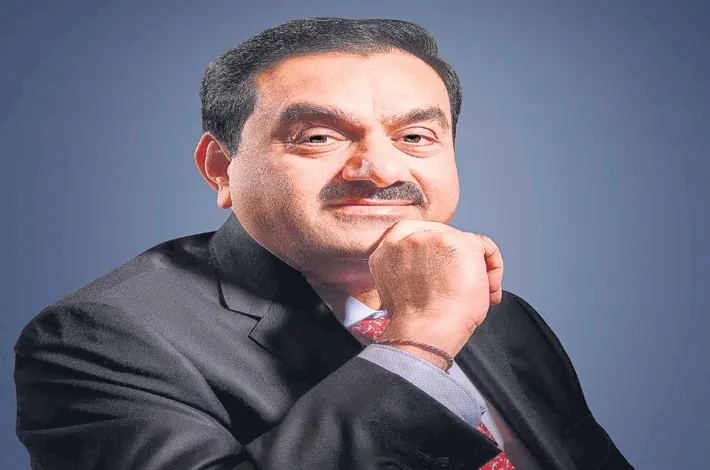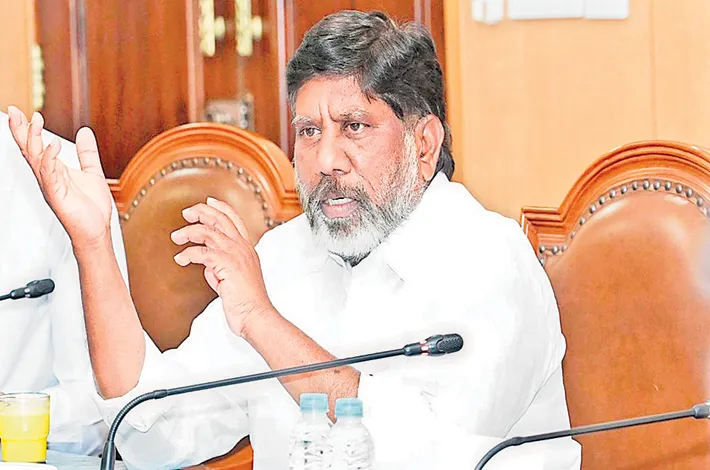Was LIC Correct to Back Adani?
29-10-2025 12:00:00 AM

Washington Post allegations on LIC's Adani investments- charges denied but questions remain
■ While not denying its investments in Adani group, LIC mentioned that its investment in the Adani Group was just 1% of its total assets under management and clarified that that its investment decisions are made independently by its board and neither the Department of Financial Services (DFS) nor any government body had any role in them.
■ "We have entered democracy’s post-referee age. We now live in a world where institutions are disbelieved, impartiality is mocked and citizens choose sides not by policy – but by identity. This crisis will end only when we decide democracy is worth believing in."- Washington Post columnist Fareed Zakaria
■ “Gautam Adani is lucky. 68 years ago, a sparkling Congress MP blew the lid on a fishy LIC investment of Rs 1.25 crore in a private company. The finance minister resigned. The LIC chairman resigned. A principal secretary resigned. The MP was Feroze Gandhi, the PM's son-in-law.”- “@churumuri” on Social Media X
The Washington Post recently published a report alleging that the Indian government pressured the Life Insurance Corporation of India (LIC) to invest $3.9 billion (about Rs 33,000 crores) in the Adani Group, including a $500 million bond subscription for Adani Ports to refinance debt. As per that article, LIC invested $3.4 billion in corporate bonds issued by Adani entities to refinance existing loans and $507 million to boost LIC's equity stakes in several Adani subsidiaries (e.g., Adani Ports and Special Economic Zone, or APSEZ).
It also mentioned that this plan was developed in consultation with LIC executives and the government think tank NITI Aayog. The allegation is that LIC subscribed to the entirety of a $507 million bond issue by Adani Ports without competitive bidding. This article triggered sharp criticism from Indian opposition leaders, who labeled it as evidence of "crony capitalism" and misuse of public money.
Congress President Mallikarjun Kharge questioned the misuse of LIC savings and demanding accountability for risking policyholders’ funds. Jairam Ramesh, Congress General Secretary, called for a Public Accounts Committee probe, describing the alleged Rs 33,000 crore investment as part of a “Modani joint venture” to prop up Adani amid U.S. fraud charges. TMC MP Mahua Moitra challenged LIC’s denial, sarcastically asking on X what part of the bailout or rushed approvals was “false.”
The LIC however has issued a strong rebuttal to a Washington Post article alleging that its investment decisions, particularly a reported $3.9 billion investment in Adani Group securities, were influenced by the Indian government. Though it did not explicitly deny having any investments in Adani group, LIC asserted that its investment decisions are made independently through rigorous board-level deliberations.
In a statement released following the article's publication on Friday, LIC emphasized that neither the Department of Financial Services (DFS) nor any government body has a role in its investment decisions. According to LIC, its investment in the Adani Group constitutes just 1% of its total assets under management, well within its investment norms. Publicly available data reveals that the $500 million bond subscription for Adani Ports was used for a buyback of bonds maturing in 2027 and 2029, yielding LIC an additional profit of Rs 950 crore with a 1.26% spread over 15 years.
From a legal perspective, a Supreme Court senior lawyer stated that the allegations hold no weight in a court of law without evidence of kickbacks or corruption. He noted that even if government suggestions were made, they would not inherently taint an investment unless there is proof of impropriety, such as a quid pro quo benefiting LIC officers or other parties. He emphasized that LIC’s primary duty is to its policyholders and shareholders, and its investments in Adani have yielded returns, suggesting sound financial judgment.
On the question of whether the Finance Minister or SEBI should issue clarifications, financial market experts felt it was unnecessary. Stating that it would “raise more questions than answers” adding that the allegations fall outside SEBI’s or the Finance Minister’s domain, as they pertain to LIC’s internal investment decisions. A former senior official of SEBI, echoed these sentiments, stressing LIC’s robust investment process with multiple layers of scrutiny. He noted that LIC’s long-term investment horizon, often spanning decades, differs from typical market strategies and has historically yielded significant returns, as seen in its past investments in public sector undertakings.
For LIC investors and the public, the key takeaway is the insurer’s robust governance framework and the absence of credible evidence supporting the Washington Post’s claims. While repeated scrutiny—domestic or foreign—underscores the need for transparency, LIC’s swift rebuttal and the lack of substantiated allegations suggest this episode is unlikely to impact its operations or market confidence.








